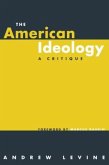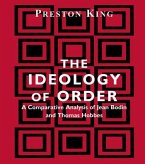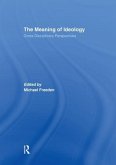First published in 1980. Of all the concepts deployed in the study of politics the application of the concept of ideology is by far the least precise. Those who have sought to clarify its meaning have concluded that ideology is not an independent constituent of political life and indispensable to an adequate representation of the form of political association; but, rather, a kind of epiphenomenal, parasitic and irrational thought that misguides the unfortunate, ignorant or confused in the pursuit of the unobtainable. The Form of Ideology attempts to demonstrate that this view is wholly mistaken. It offers students an understanding of ideology free from the conceptual confusion involved in the belief that ideology is in any sense a theory that can be put into practice. In addition, it argues that ideology is not a defective theory of politics, because, properly understood, ideology is not theoretical understanding of the world at all. It is not the product of any kind of investigation yielding information. The Form of Ideology permits beliefs in ideological claims, not proof of ideological assertions. It affords political inspiration and aspirations rather than judgement and knowledge. If the argument in this book succeeds in demonstrating the truth of this conclusion then the study of politics must take a completely new direction. The first three chapters explore the grounds for the methodological break the group has made with previous investigations and offer a critique of some current misconceptions; the remaining three chapters mark out the limits of the intelligibility of ideology within the context of political thought and life following the direction indicated by the previous three. The book's concern will be of central interest to advanced undergraduate and postgraduate courses on ideology, the history of political thought, political theory and political movements in departments of political science, sociology, philosophy and history; it is unique in that it offers an account of the form of ideological understanding seen as a mode of thought in its own right.
Hinweis: Dieser Artikel kann nur an eine deutsche Lieferadresse ausgeliefert werden.
Hinweis: Dieser Artikel kann nur an eine deutsche Lieferadresse ausgeliefert werden.








